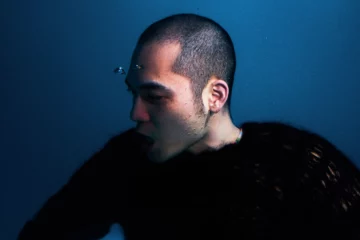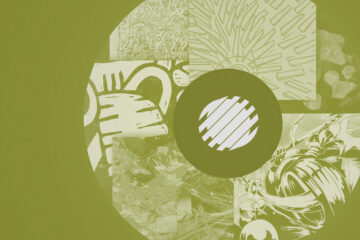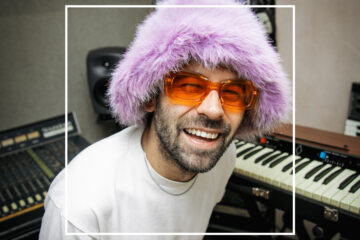L.I.E.S.—there’s hardly a fan of electronic dance music who doesn’t recognise these capital letters. They stand for »Long Island Electrical Systems« and reveal the label’s origins: its founder, Ron Morelli, hails from New York. It was there, in the early nineties, that he came into contact with punk and hardcore. Although his friends included skaters and »freaks«, as he affectionately calls them, as well as ravers, the dance music scene didn’t really appeal to him at the time: »It all seemed very drug-driven and decadent. I’m neither of those things«.
It wasn’t until the end of the decade that Morelli got hooked, and then in a big way: »I became obsessed,« he says of a formative period. »The New York scene was in transition in 2000. There were hardly any real clubs left and the police were cracking down on nightlife.« A tough, but in one way or another certainly enticing period for someone with Morelli’s de-institutionalised musical background.

Non Stop Rhythms 2024 Repress

Go Wild Harlem Trax

Women's Hour

Tmo X Piankov
You can hear this in most of the now nearly 300 L.I.E.S. releases—sublabels included. Even if they are anything but stylistically homogeneous, they are united by a certain haptics, a penchant for the imperfect. Whether it’s Malvoeaux’s »Targets EP«, the label’s first release from 2010, Tzusing’s début album from 2017 or Ron Morelli’s LP »Heartstopper« from last year, the sound is analogue, raw and compressed. Like a snorting, rusty tin can that barely passes the MOT, but still reliably gets its passengers to their destination every time.
Cardinal & Nun’s 2021 album »Dancing in the Evil« takes this aesthetic to the extreme, with its maximally against-the-grain EBM emerging from the depths of darkness and turning the harnesses of the kids at UNREAL raves inside out. Punk, industrial, gothic and related genres are just one side of the coin. L.I.E.S., as Malvoeaux has already mentioned, has always seen itself as a label for sun-drenched dance music that eases the burdens of existence.
Music with a physical presence
Legowelt, Voiski, Inventar act Delroy Edwards and Wiesbaden-born Florian Kupfer have all made guest appearances on the label, providing Morelli with the right amount of weightlessness, which was particularly popular in the early to mid-2010s. At the time, the label boss was working at the A-1 record store, his »base« from which he made L.I.E.S. known: »I started the label and just wanted to see what happened; I didn’t have any big plans other than putting out the music.« Access to the DJs who regularly visited the shop was extremely important.
And certainly the fact that, musically, the label was very much on the cutting edge in its early years: L.I.E.S. records embodied the status quo of the time by drawing on the past for their sonic aesthetic. Some call it lo-fi house, others meme house. Despite its epigonic nature, noise and retro patina, it sounds fresh, subtle and unforced. And for a while at least, it was an underground counterpoint to the mirror-smooth minimalism that was changing the guard at the time.
L.I.E.S. has always seen itself as a label for sun-drenched dance music that lightens the burden of existence.
And today? Times have changed since the early days of L.I.E.S., labels have hit harder and harder times. Merch—the selection in the shop is quite diverse—is still »not really important«, but creates another source of income in times of lower music sales. »Instagramification is just a plague,« says Morelli. A platitude that, coming from him, sounds more sincere than ever. »Streaming DJ sets is lame. A DJ should be heard, not seen. It should be about the music you play and the skills you have.« And even though this sentence could have been written a thousand times in the relevant Facebook comment sections, it makes sense coming from Morelli’s mouth. The undeniable superficiality that clings to electronic music today more than ever is diametrically opposed to his values.









